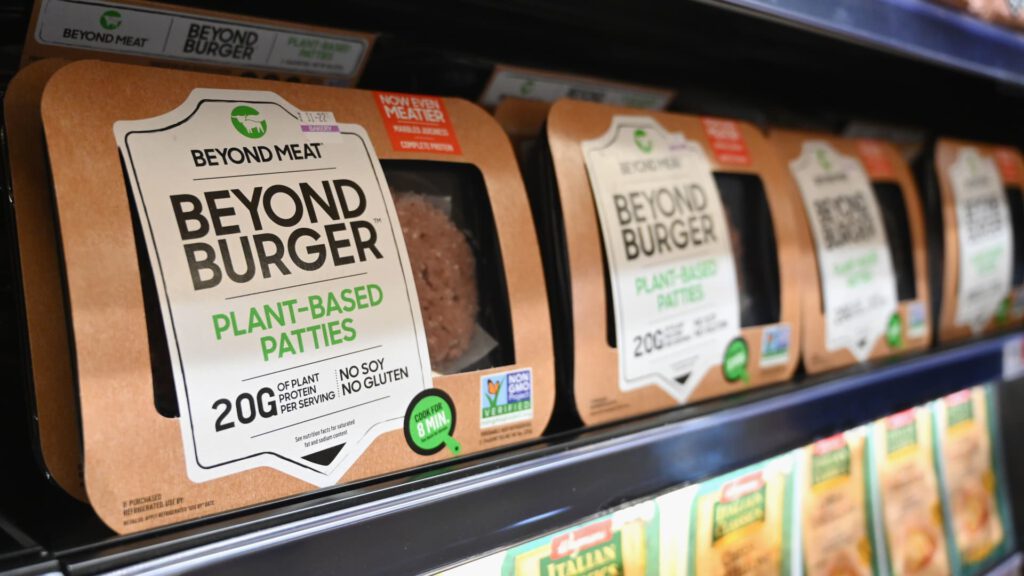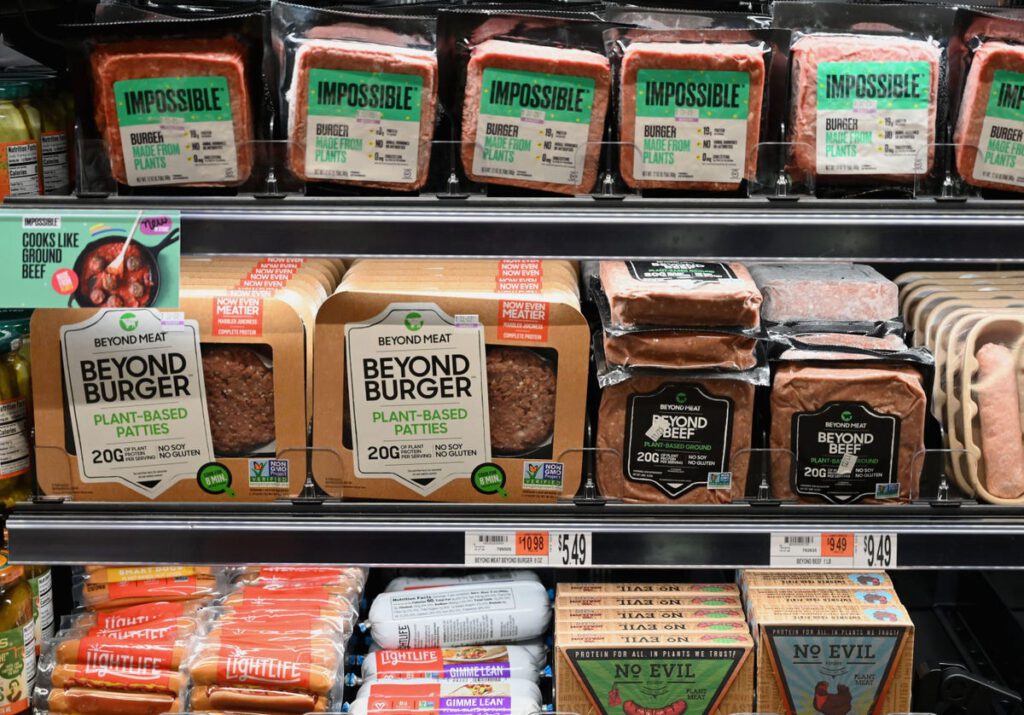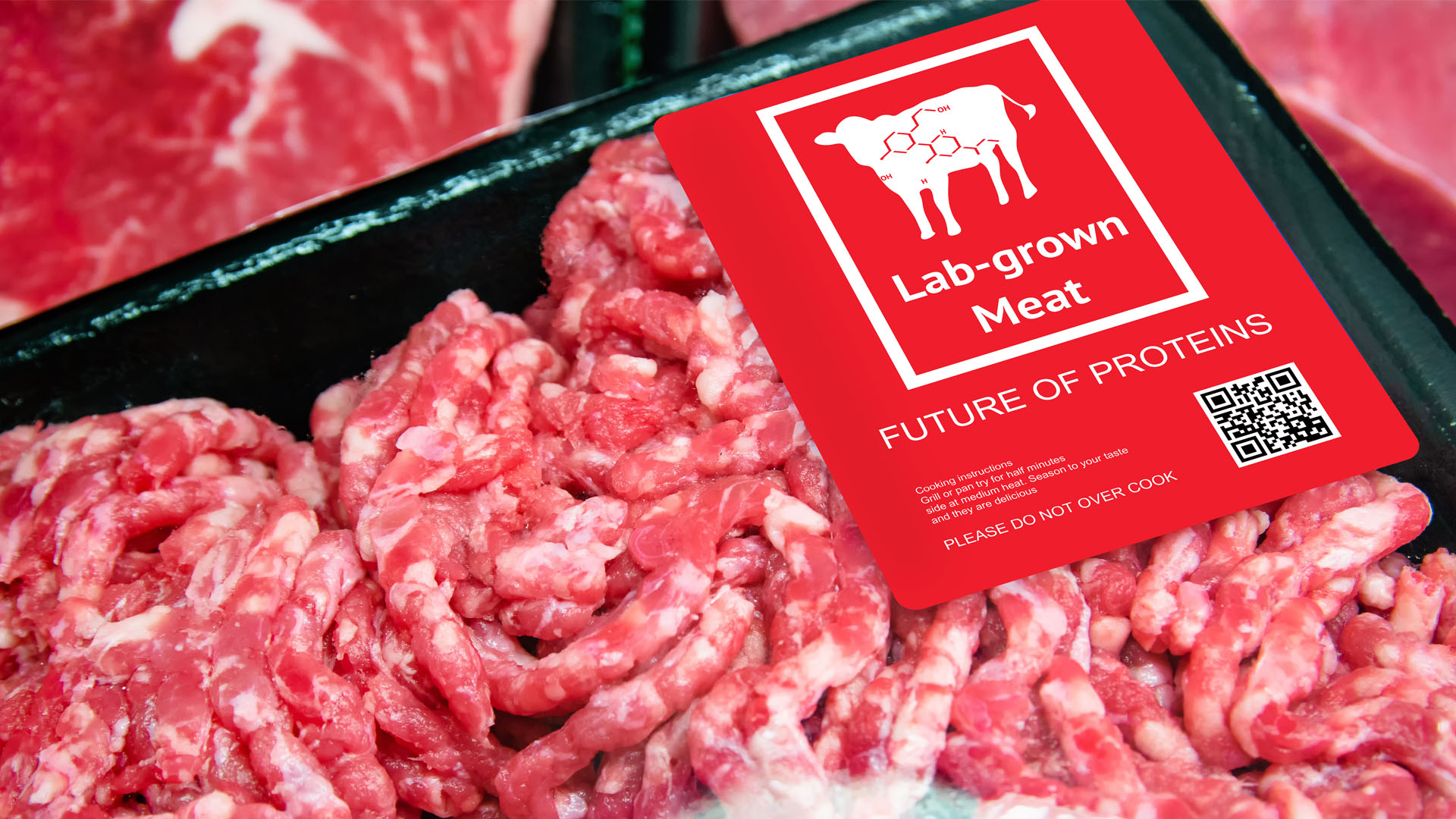Beyond Meat market
The share price has gotten a lot cheaper, but the numbers behind this veggie alternative to meat might make your stomach turn.
Beyond Meat (BYND), the plant-based meat alternative company released a weak earnings report on Thursday, and now the stock is down 33% year-to-date.
Does this make for an opportunity for bargain-hungry traders to dig in, or will buying now give investors indigestion later? (And, what about those bonds?)
Let’s first tackle the earnings. The poor results were in part due to new competition, and because fewer U.S. households than expected started eating vegetarian alternatives to meat. Beyond Meat‘s revenue of $147 million declined slightly year-over-year, and losses were around $97 million. The gross profit margin came in at -4.2%.

As more competitors edge in and losses and debt for Beyond build, the shares will likely trade lower. But Beyond did get off to a good start. Striking deals with fast food corporations such as McDonald’s (MCD), Taco Bell (YUM), Restaurant Brands International’s Tim Hortons (QSR), and PepsiCo (PEP), Beyond Meat had a critical early advantage. Yet, these opportunities have mostly fallen flat. Dunkin’ dropped a plant-based offering, while Tim Hortons now offers Impossible sausage from Beyond’s strong competitor, Impossible Foods. McDonald’s has reportedly concluded its trial of the McPlant Burger in domestic locations after disappointing results as international trials are ongoing.
Beyond Meat has done an excellent job diversifying its products, but there’s competition in most categories. Beyond once dominated the plant-based meat section at Whole Foods (AMZN), but now it looks more like the yogurt section with offerings from numerous makers.
The analyst community has already reasoned that the situation is beyond redeemable. No firm has a “Buy” for Beyond, and 15 have “Hold” ratings, while six have “Sell” or “Underperform” ratings. The average price target is $25. Perhaps the silver lining for the stock is that nobody is left to be bearish. But, since Beyond is bleeding cash and has an already rich valuation of 5-times enterprise value/sales, there’s little room for a contrarian to prosper.
Undoubtedly, Beyond Meat’s products benefit climate and animal welfare initiatives. Plant-based products will likely become more mainstream, especially in a food chain stressed by more extreme weather. Beyond’s offerings are “earth friendly” compared to meat and dairy, although the benefits to shareholders are in far more doubt.

Since going public in 2019, BYND has taken on a significant amount of debt of $1.1 billion to fund losses. Beyond’s zero coupon convertible bonds due in 2027 are trading at 39¢ on the dollar for a yield to maturity of over 21%. Investors who believe in Beyond Meat’s financial survival over the next five years ought to consider these bonds instead of the common stock.
If redeemed at par, the bonds will return over 150% by 2027. To conserve capital, the company plans layoffs and other cost-cutting measures to reduce operating expenses, but the company can still burn through most of its cash over the next six to eight quarters without an appreciable upturn in business. Considering the bond market is shut for Beyond Meat for the foreseeable future, the company will likely issue dilutive equity to cover future losses and shore up its balance sheet.
A considerable short interest of 37.50% in BYND stock can potentially keep the shares buoyant for some time, especially in a market that’s become more speculative. Still, the stock is a sell on any strength. Ultimately, dilution and continued losses make the shares un-investable and beyond toast.









